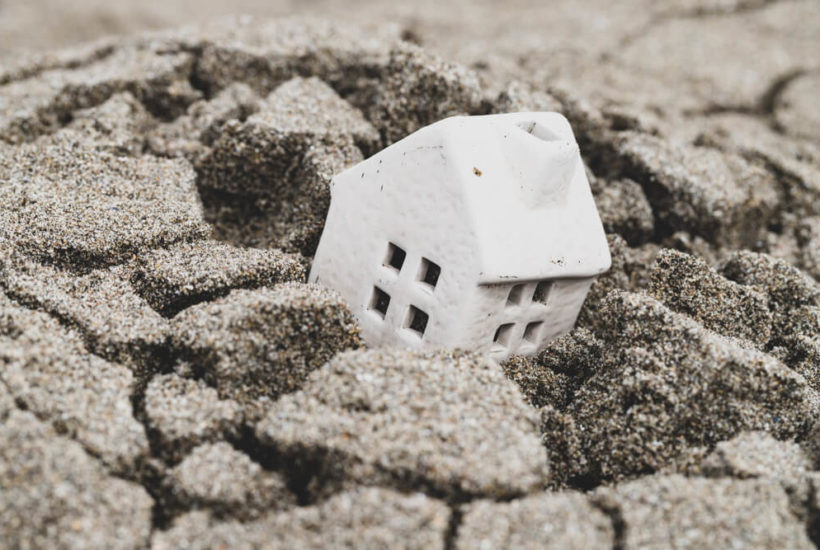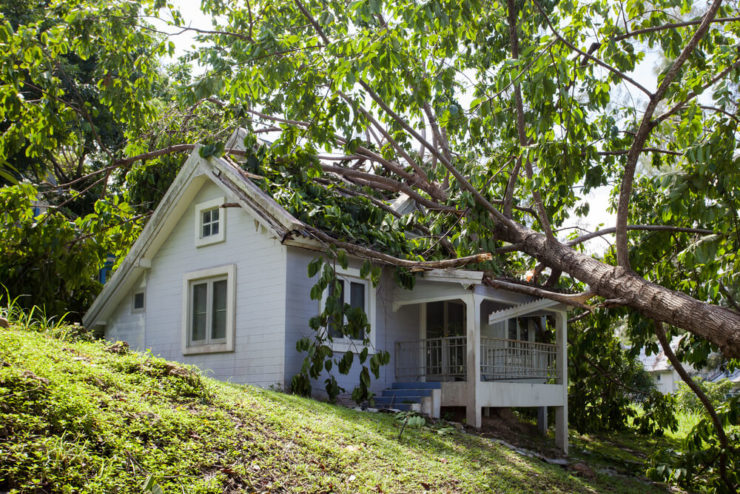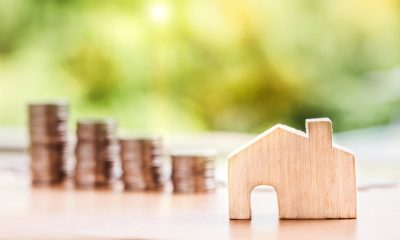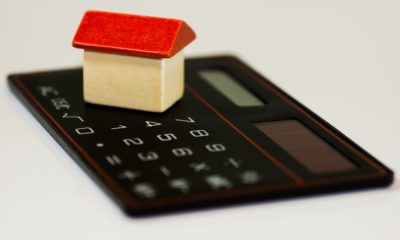Business
The state of real estate after a natural disaster
How do natural disasters change the real estate industry, from the perspective of home buyers to home sellers?

When a natural disaster strikes, the first instinct is to flee. Besides, our loved ones’ well-being is the primary priority. The home left behind, however, pays the price. In fact, during wildfires, mudslides, flooding, hurricanes, tornadoes, and earthquakes, many homes pay the price through destruction or severe damage. So, when the dust settles, what’s next? Can a buyer purchase a home after a natural disaster? Can a seller sell the home after a natural disaster?
The aftermath
All disaster areas take a nosedive in asking price and property value before surging upward and normalizing. The shift takes time. The nose-diving severity depends on whether the neighborhood has a disaster risk label. Natural disasters occurring in neighborhoods already labeled medium to high-risk will dip slightly before returning to normal. Sellers and residents expect a disaster situation in these areas, and agents will inform buyers about this in advance. Natural disasters occurring in neighborhoods with no prior label catch everyone off guard. The sudden occurrence drives buyers away, shake a seller’s confidence, and stuns residents. Expect the normalization process to take longer in these neighborhoods.
If you buy…
Expect most sellers to offer deals and bargains in hard-hit areas. Investors are likely to buy damaged homes for a low cost because they have the resources to spruce up the home and resell for rental income. Other investors prefer to fix and flip the home for profit. Meanwhile, displaced families will rent temporarily or pay for a new home just to have a place to stay.
As for traditional buyers, don’t buy a home without understanding risk. Research the risk of natural disasters in the area. Rely on a real estate agent for the market climate in disaster areas. The best buy is unfazed homes in disaster areas. The market value fluctuates frequently at this time so don’t pay more for a home than intended. Waiting until the market stabilizes to buy a home in the area is also a great idea.

Investors are more likely to buy damaged homes for a lower cost as they have the resources for renovation. (Photo by stockphoto mania via Shutterstock)
Lending companies will take longer to accept or deny mortgages due to rigorous assessments and inspections surrounding disaster areas. For homes in the middle of the buying process such as escrow, appraisals, or home inspections are tricky. Most contracts allow the sale to continue if the repairs are 5% of the home or less. Sadly, this isn’t most natural disaster homes. Most are beyond saving or destroyed. Homes in that condition gives buyers the out clause they need to bail. Meanwhile, sellers are stuck with a worthless home, but there are options.
If you sell…
It is not completely crazy to sell during a natural disaster. To sell in this environment, take photographs and videotape the home’s post-disaster condition. Contact the home insurance provider and FEMA to file a claim. Choose repairs that increase property value, then photograph and videotape all repairs. Drastic renovations don’t guarantee profit in this environment. In fact, sellers will have difficulty generating a profit at all in the environment. Unless the home is untouched, aim for breakeven or a loss. Keep the receipts of restoration projects, home improvement projects, and materials purchased as evidence. Meanwhile, unaffected homes are now lucrative, meaning sellers can charge top dollar and possibly earn a profit.
For sellers who would rather take the home off the market, it’s an ideal strategy. Agents may encourage sellers to do this and some will comply. Unfortunately, it’s not the answer for all sellers. Contracts, job opportunities, and family emergencies force sellers to see the process through. The need for immediate funds is too tempting to delay a sale. The answer is up to the seller and his/her dilemmas.
While industry results vary by area, an experienced agent can guide buyers and sellers to the right home after a natural disaster. The staying power for homes in affected areas is uncertain, yet gurus, buyers, and sellers in the real estate industry focus on the positive. There is good in bad situations. The industry will rebound in time.
(Featured image by flying v3 via Shutterstock)
—
DISCLAIMER: This article expresses my own ideas and opinions. Any information I have shared are from sources that I believe to be reliable and accurate. I did not receive any financial compensation for writing this post, nor do I own any shares in any company I’ve mentioned. I encourage any reader to do their own diligent research first before making any investment decisions.

-

 Biotech2 weeks ago
Biotech2 weeks agoWhy Bioceres Shares Slide Into Penny Stock Territory
-

 Africa7 days ago
Africa7 days agoAgadir Allocates Budget Surplus to Urban Development and Municipal Projects
-

 Cannabis2 weeks ago
Cannabis2 weeks agoKONOPEX Expo 2026: Celebrating Europe’s New Era of Legal Cannabis
-

 Biotech4 days ago
Biotech4 days agoVolatile Outlook for Enlivex Therapeutics as Investors Await Clinical Catalysts

























